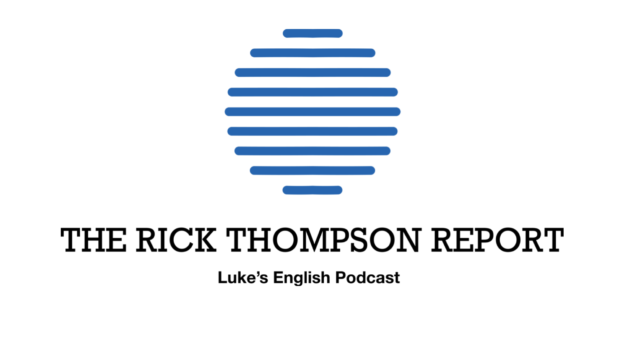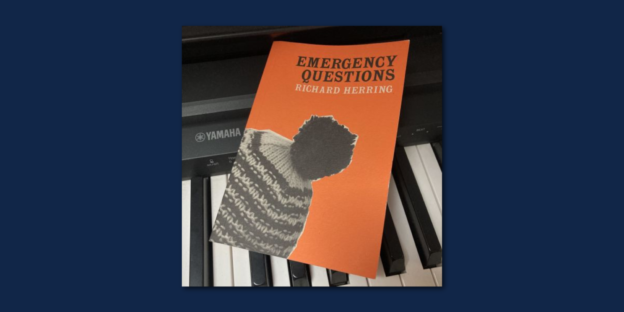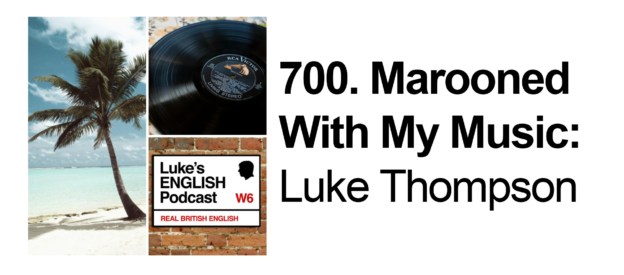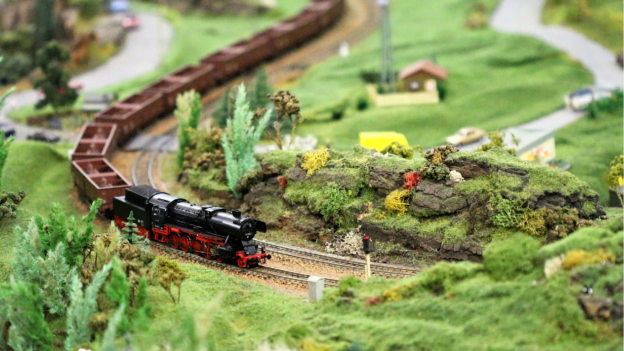An episode exploring the subject of how to raise a child to speak English. I speak to Alex, an English teacher from Moscow about how he has been speaking exclusively in English to his 4-year-old daughter Alice since she was born. Let’s find out how it’s going.
[DOWNLOAD]
Introduction Transcript
Hello listeners,
Just in case you don’t know. My name is Luke and this is my podcast for learners of English all around the world. Welcome.
Just a reminder at the start here that this podcast is made possible thanks to donations from listeners and the paid premium subscription that you can sign up for in order to get access to over 100 episodes all devoted to helping you improve your grammar, vocabulary and pronunciation. The library is growing all the time as I publish new premium stuff, and I am currently working on some new episodes which I hope to record and publish soon. Being a Premium LEPster means you get access to all that content, as well as the free stuff, and it also means that you support this whole project too. To get all the information, including the very reasonable prices just go to teacherluke.co.uk/premiuminfo
One other thing – there’s a big vote coming up, a very important election in which one person is going to be chosen and it’s all very tense and historic – everyone’s talking about it – yes that’s right I’m referring to the WISBOLEP competition on LEP (what else?) I just wanted to mention this because people have been asking about it. The competition is closed now and I am working on the next stage of it, which will be to let you hear all the competition entries and then let you vote for your favourites, then based on the results of that vote, I’ll choose a LEPster to be interviewed on the podcast. I can tell you that there have been lots of strong entries so it will be difficult to choose just one person, but that’s what we have to do. So, stay tuned to LEP to hear an episode with everyone’s 2 minute speeches in which they try to convince you to pick them for LEP. That’s coming soon, when I’ve worked out how to manage it all. It’s coming in any case. Right, that’s that then, and now it’s time to start this episode properly, and here is the jingle!
Jingle – You’re listening to Luke’s English Podcast, for more information visit teacherluke.co.uk
Hello and welcome back to the podcast everyone.
This is the first in a series of episodes called Raising Bilingual Children, and it is about exactly that – the topic of bringing up children to speak several languages, or more specifically bringing up children who speak English as well as another language.
Ever since my daughter was born nearly 3 years ago I have been meaning to talk about the topic of raising bilingual children, or at least raising children who speak English fluently.
My podcast is mainly here to help my listeners improve their English, but a lot of you out there have kids and naturally your thoughts turn to them and their English.
I have had lots of requests from listeners asking me to talk about this topic, so that’s why this series exists, this being the first proper episode on the topic. I’m not sure how often I’ll be doing these, but it’s a topic I plan to return to in various ways in the future.
Maybe you have children and you want them to speak fluent English as well as another language. This is for you if that is the case. Maybe you don’t have children yet, but you might in the future, in which case you are thinking about how to help your future children learn English. We know that starting early is so important in language development. So, it’s certainly useful to have an awareness of this topic so you can do the right things when children come into your life.
Or maybe for you, having children is not a concern, because you’re not going to have children or you’ve already done it, but I still hope this will be interesting for you, because ultimately it is all about learning English and certain essential principles related to doing that.
The topic of raising bilingual children is massive. I am by no means an expert on this specifically, although it’s something I’ve been reading about, thinking about, talking about and also I’ve been doing it myself because I am raising a bilingual child, or hoping to, anyway.
As you may know, I live in France, and I have a young daughter – she’s nearly 3. My wife is French and and we are doing our best to make sure that our daughter learns to use both French and English with ease and confidence. So, I have experience in this area. But I haven’t done a masters degree in this topic or anything like that. My qualifications and experience are in teaching English to adults mainly. So I’m learning about it myself too.
It’s a complex topic.
There are big questions that come up when you start to talk about bilingualism in children, like “What is bilingualism exactly?”, “How do we define “bilingual?” “What is a native speaker?”, “How do children acquire languages? And is this different to the way adults do it?” and more… “What are the standards that we can realistically expect from children who aren’t living in an English speaking country and whose parents aren’t native English speakers?”
Also there are the many combinations of factors involved – many different situations that make it quite hard to get a proper grip on the topic.
For example, (and let’s just let’s use France as an example here, because that’s where I live, but you could replace France with any other country and this will still work)
Examples of Different situations
These different situations might require slightly different approaches or they might involve different challenges for parents.
- One parent is French, the other is a native English speaker, they live in France. (like my situation)
- One parent is French, the other is a native English speaker, they live in England.
- Both parents are French, neither is a native speaker of English, but they live in England, the child is at school in English.
- Both parents are English, both are native speakers, but they live in France and the child goes to school in French.
- This is the holy grail: Both parents are French, neither is a native speaker of English, they live in France and the child is going to school in French.
- Or similarly, one parent is French and let’s say the other is Korean, neither is a native speaker of English, and they live in Brazil and their child is going to school in Brazilian Portugese.
There are probably more possible combinations, and also there are other factors to take into account, like whether there is a wider community that exists in the target language (like grandparents who speak English that live nearby) or whether the child is going to a “bilingual school” (and there are various versions of that) or a monolingual school (only in English).
The more you think about the possible combinations, the more complex it gets! Especially from my point of view as I want to cover all the bases.
Also, there are different approaches you can take.
- One parent, one language.
- English in the home, another language outside.
- English at the weekend and another language during the week.
Lots of combinations.
But, without getting too academic about it, I think one of the best ways to explore this subject is just to talk to people in various situations who are raising their children to speak English or who have done it, and just find out as much as possible about them.
Actually there are loads of people I can talk to about this, including my wife, our friends like Amber for example – who lives in France and has two children now, some of my colleagues at the British Council whose job it is to teach English to children and a lot of LEPsters who have success stories to share.
Alex Suvorov and his daughter Alice (4 years old)
This brings me to this episode in which I am talking to a long-term LEPster Alex Suvorov, and his 4-year-old daughter Alice.
I have been meaning to talk to Alex on the podcast about this topic for quite a long time now.
As you’ll hear, Alex fits into the category of a non-native speaker in a non-English speaking country (I mean one where English is not the first language) who has been raising his child to speak English.
There’s a lot to unpack here, but basically I want to find out firstly how Alex got his English up to its current level, and then talk about his daughter’s English. That’s it, basically.
Hopefully we can shed some light on this whole subject and maybe give you some inspiration or food for thought.
At the beginning of the conversation Alex is joined by Alice, and you’ll be able to hear her speaking a little bit, but after a few minutes she goes into the other room and it’s just Alex and me, but at the end you will be able to hear a short recording that Alex made of him speaking to Alice, which will give you a little idea of what her English is really like.
So, without any further ado, let’s go.
Ending
So that was my conversation with Alex Suvorov, about his approach to giving his daughter a headstart in English. I’d like to say thanks to Alex and his daughter Alice.
Now, it would be interesting to hear a bit more from Alice so I’m now going to play a quick recording that Alex & his daughter made together, so you can hear her speaking in English.
This is about 5 minutes long and you’ll hear Alex basically trying to get Alice to show us her English, which is quite hard, because as you might know, it can be quite difficult to get little children to cooperate sometimes, but if you listen carefully you can hear Alice responding to Alex’s questions and prompts and saying little comments here and there.
Bear in mind that she is only 4 years old. So in terms of her English we’re not looking for Dame Judy Dench here – you’re never going to get spectacular and fully formed language from a child of that age, in any language. So don’t expect to hear Amber Minogue here. THat’s not what we’re looking for.
What we are looking for is the ease with which she speaks in English. Listen out for how comfortable she is speaking English. Actually, I don’t hear any grammar or vocabulary errors from Alice but she might be a bit hesitant or shy – because 4 year old children often are and Alice knew she was being recorded here. Her accent might sound a bit Russian, but as we said near the end of the conversation, for a 4 year old the main thing is that sense of confidence and comfort in English – and I think Alice has that. Specific points of pronunciation can be worked on later. But a foundation of comfort, confidence, fluency and the feeling that English is your own language combined with an instinctive sense of grammar and vocabulary are the most important things you can give a child. I think you can hear that from Alice.
Anyway, let’s listen…
Listen to Alex and Alice talking…
So that was Alex and Alice.
Some of you will be desperate to say that she has a Russian accent, and maybe she does a bit, but like we said before, that’s fine. We’re not looking for perfection here. We are looking for a baseline or foundation of comfort in English, and I think it’s fair to say that Alice has got that. You heard her producing correct grammar, fairly complex little chunks of English, decent and other things might come later, like her accent, especially if she continues to listen to English from things like cartoons, films, and also audiobooks and so on.
But the main advantage that little Alice has got is that English is part of her life.
Is Alice “bilingual” – well that depends on how you define bilingualism.
As Alex said, he estimates her vocabulary to be about 20% behind that of a native speaker of her age. That’s great. Remember: Connection, not perfection. For those of you who cannot get over the fact that Alice still sounds a bit Russian, I would ask you this – Is Alex wasting his time? Would it be better for Alice if her father only spoke Russian to her? Is it realistic to expect Alice to speak like a native speaker, like mini Amber Minogue? Is Alice’s English 20% worse than a native speaker, or is it perhaps 80% better than a child who only ever speaks Russian?
Food for thought there.
Of course it is about personal choice.
But still, it is worth thinking about.
If you are also raising your child in English to some extent, do get in touch and tell us about your experiences in the comment section of this episode. We’d like to know what you think and what you are doing, including your doubts too.
Thanks again to Alex for talking to us and sharing his story.
You can find Alex on Instagram by the way, and everything he posts is in English, so check it out.
https://www.instagram.com/suvorovalexander/
And that website for checking your vocabulary – www.testyourvocab.com
The website’s test is fairly reliable I would say, if you answer it honestly. It’s all based on an academic research project and every time you take the test the data gets added to their database, and the database is there to help with the academic study. Anyway, to cut a long story short, it seems quite reliable, but that’s the best I can say.
I just took the test. It took about 5 minutes. Would you like to know how many words I know?
Well, apparently I know 31,200 words which is ever so slightly above average for a native speaker of English in my age group. So, this means I am entirely normal, or a tiny amount above normal, which is good to know. So, my English appears to be a very good sample of what the average British person knows, which is quite reassuring.
Do you have a story of raising a bilingual child that you’d like to share? Tell us about it in the comment section below!











